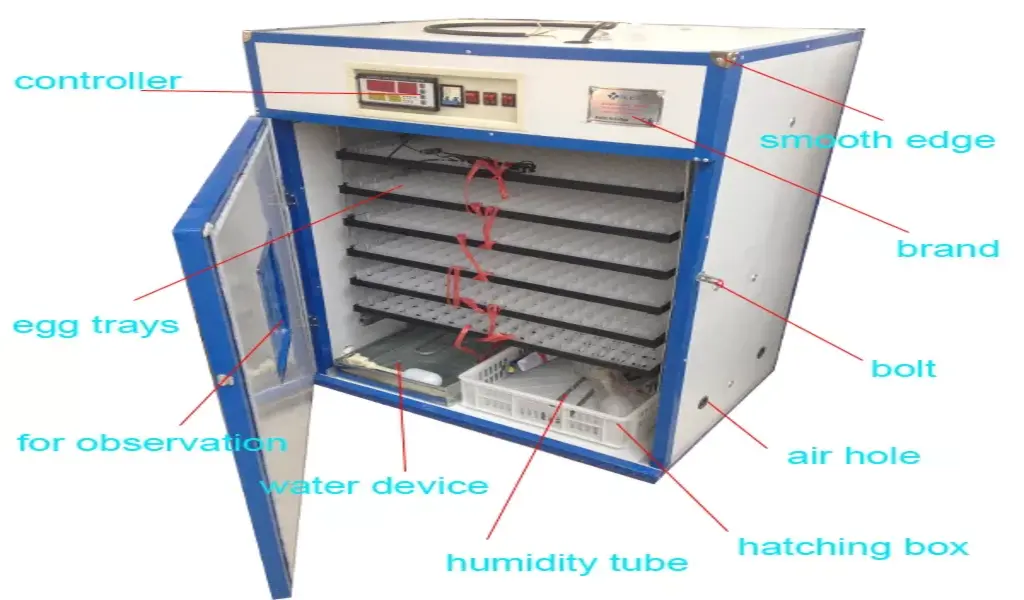Business
A Complete Guide to Buy a Laboratory Incubator

Many people’s sole point of reference for the word ‘Incubator’ is the machine in a maternity ward that keeps babies in a perfectly designed environment.
But there’s another kind of incubator that saves lives too.
‘Laboratory Incubators’ are highly sophisticated scientific equipment mostly found in various labs such as research, analytical and diagnostic.
They are mostly used to store samples and specimens in ideal temperatures to avoid external influences and to let biological and chemical transformation take place under optimal control.
These incubators mainly help organisms to develop, grow and store bacteria cultures. But today, they are responsible for a number of other developments as well.
But there are so many variations in these that it gets very hard to choose and know what’s right for whom.
They’re available in different sizes and configurations, with different types of regulators (CO₂ and O₂), with or without a shaker (shakers avoid clotting and have better solubility).
So, here are some things that you should look for in your lab incubator to make a wise choice:
-
Capacity and space
You need to consider how much work or how many projects you want to get done, and that will mark your desired capacity. Also, you need to keep in mind the size of your lab and the space you can afford for the machine.
There are manufacturers like Labec that make many different kinds of high-quality incubators for different purposes. That’s why you need to think about your specific needs, capacity, and available space.
Large ones consume more energy and hence cost more to operate and maintain. But their size allows adjustment and modification.
For example, you can add or remove shelves and holders in the chamber as needed.
Incubators with direct heat can reach desired temperatures much quicker, but they need a constant power supply.
The ones with indirect heat are slower by comparison, but they can preserve temperature for a significant amount of time.
Air-jacketed incubators are usually cheaper and less hassle to set up or maintain. But the water-jacketed ones can hold the temperature for a longer period and take less energy to get back to higher temperatures again.
-
Use-case scenarios
You can select the best incubator for your lab by focusing on the machine’s intended use or desired applications.
If you want the best ones for mammalian cell culture, go for CO2 incubators. But if you want a machine mainly for microbiological purposes, then the standard or shaker incubators are better in most cases.
Ambient temperatures in most incubators generally range between 60 to 90 percent. But if you need some specific humidity level, the ones with humidity control should be your preferred choice. These generally have a water reservoir or a vapor outlet to heat or spray water.
In any other case, the standard incubators, which have transparent doors to seal the chamber, are capable enough.
Even these standard ones can produce humidity if combined with a water container.
This amount of humidity can condense moisture, which in turn can create microbial contamination.
The risk is even higher for the samples that remain in incubators for quite a few days.
So, suppose you are working with special samples or ones that are limited for use. In that case, you can consider the lab incubators with a door with proper heating capability or the ones that can end cold spots (areas where water droplets are created).
But if your samples are quite expendable, you can fit ‘High-Efficiency Particulate Air or HEPA filters inside the chamber.
You can also consider connecting autoclaves to a water stream generator or filling the container with sterilized water to reduce contamination.
If you want faster heat transfer, you can consider an incubator with fans or blowers. But if your use includes egg hatching or insect breeding, then the normal ones are better, as fans can mess up these delicate proceedings with their drier, forceful and non-stationary air circulation.
Incubators with Peltier cooling are more friendly to the environment but can only go slightly lower than ambient temperatures.
So, if you need lower temperatures, you should consider machines with a vapor-compressor system.
-
Price and features
The most important aspect before purchasing any product is its price. You should always keep within budget.
Also, consider long-term maintenance charges, electricity consumption, etc., and take them into the equation.
Another area you can focus on before making your decision is the ease of use or the specific features that help you do things simply.
A touch-screen, a LED display, removability of shelves, type of shelves (wired or solid), a backup unit for incessant power supply- everything can be useful in specific situations. Hence, take note of all these features as well.
CONCLUSION
Don’t look for the best incubator; look for the ideal one for your uses.
And to choose the ideal one, make a comprehensive analysis of the lab and its intended applications.
You can get a pretty good idea about which one to select if you consider the points made above.
Related CTN News:
Bill Gates Plans To Give Away ‘Virtually All’ His $113 Billion
Things To Look For Before Choosing A Freight Forwarding Service For Your Business
PTT Tops Thailand’s Corporate Revenue List For 2021





























